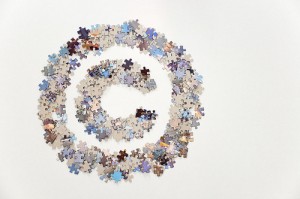
Or at least that’s how I felt until last week.
I do run a Google alert on my name, but I’ve found it only turns up a some of the mentions of me that happen in a day. And I’ve pretty much vowed not to worry about it too much. My energy is better spent writing more articles.
It hasn’t been a huge problem. It does happen occasionally, and I contact the blogger or Web site in question and gently let them know: Hey, this isn’t OK. Thrilled that you like my article, but you’re infringing the copyright. To be legit, you need to introduce it, then use perhaps a paragraph (considered “fair use” under copyright law), then link to the rest of the story back where it was first published.
I find most infringers are simply ignorant of the laws. They just wanted to share this great content! When asked, they are happy to take the article back down or turn it into a link to its publication site.
Then last week I found a mention in my Google alert on a site I didn’t know, clicked the link and…discovered one of the articles I wrote for Yahoo!Hotjobs was being ripped off by a free-article site. (Editor’s note: HotJobs has since been acquired and shut down, so the site is gone.) Below the article was an HTML-coded version ready to one-click free download the story to other sites, too! With a little quick search, I found it had spread to half a dozen different sites, several of them similar article databases which offered to share it with others free. I found yet other sites that had clearly copied the story from that site.
This pissed me off.
This was not a young, naive blogger who didn’t know the rules. This was a serious ripoff, and it was set to go viral.
I was surprised at how mad this made me. After all, this wasn’t even my copyright! It was Yahoo!’s.
But my name was still on some of the versions that had been mixmastered into junk and then posted on these sites. Some were titled “7 Great Job for Working With Your Hands,” while others had become “7 Great Jobs for Working with Your Hand” (which sounded vaguely porno to me). Some had chopped off the introductory paragraph. Some had no byline, some had someone else’s. I wasn’t sure which made me madder — the sites where I wasn’t credited, or the crappy sites where my name now appeared — places I wouldn’t ordinarily be caught dead writing for.
A lot of top bloggers take the attitude that obsessing on who’s plagiarizing from you is unproductive and generates negative energy. Some openly invite people to just rip them off, because they’ve made a decision not to care. And I thought, “Right on.”
Until this. I wanted these ripoff versions of my article taken down so bad!
I began contacting all the sites and asking them to take the post down. Some did. Some sent insulting messages back. Those that didn’t comply, I sent on to my editor. One by one, most of the sites have since taken the article down…though researching to write this, I found one more! This story may ping around the Internet in various permutations forever now. Even Yahoo!, with all the staff at its disposal, may not want to devote the energy required to stamp it out. They’d have to contact the Internet Service Provider of each site and make their case for getting the site shut down, which could be a lot of work in this situation.
So what did I learn? I found what happened deeply disturbing — it showed me the potential the Internet has to rip off writers and mess with their reputations. It made me hope any business thinking about using article directories for cheap or free content to help drive traffic to their sites will look a little closer at those sites and make sure what they’re downloading is really available for their free reproduction. Do a quick Google search on some key phrases in that story, and see where it might have originated…you may be surprised.
And now, once again, it’s time to breathe and let go. This article may be ripped off 500 times, and there isn’t going to be a lot I can do about it — except go out and write more great articles. So that’s my plan.
Have you been plagiarized, or had your copyright infringed online? If so, how did you handle it? Leave a comment and add your perspective.
If you enjoyed this post, tell a writer friend…and then subscribe so you don’t miss any tips on how to earn more from your writing.
Photo via Flickr user Horia Varlan









